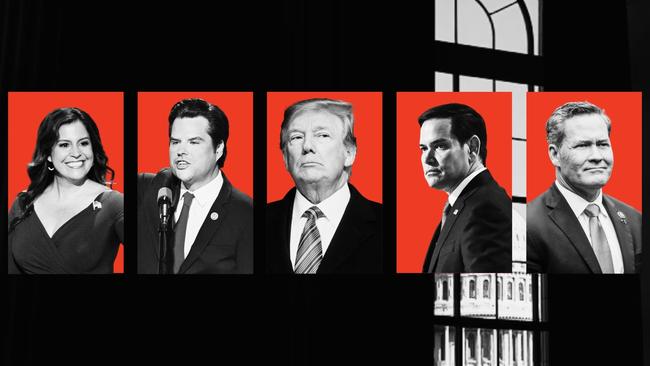
After a succession of sober nominations that won applause even from some political opponents, on Wednesday Trump went in for what Democratic senator John Fetterman called “God-tier-level trolling” by announcing Matt Gaetz, a Florida congressman, as his nominated attorney-general.
To call Gaetz a wildcard doesn’t get close. It was Gaetz who, with a handful of fellow Republicans, manoeuvred to oust Kevin McCarthy, his own party’s House Speaker, in 2022 in a fit of revolutionary zeal. His putsch was motivated in part, say critics, by a desire to avoid a House ethics inquiry into allegations that he had been involved in the trafficking of under-age girls, a claim investigated by the FBI but ultimately dropped. Now, if Trump gets his way, the Floridian with the florid reputation will become America’s chief law enforcement officer.
It almost certainly won’t happen. The AG role requires Senate confirmation and, with a Republican majority there of 53-47, it would take only four GOP senators to block the nomination. The immediate reaction from several signalled not just opposition but open-jawed disbelief.
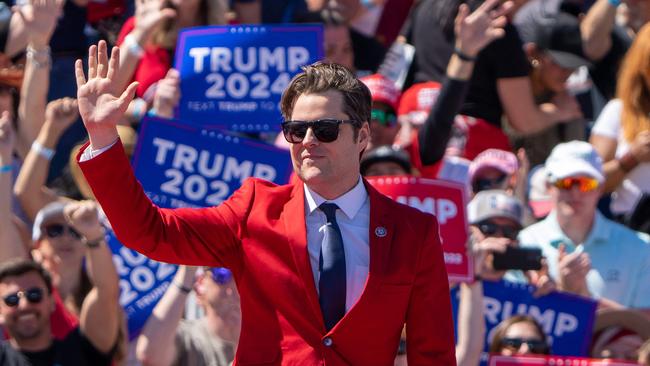
Who knows what Trump was thinking? A plausible Machiavellian explanation is that he knows some of his nominees will be voted down and so by offering an obvious candidate for rejection he might save others.
The Gaetz Gambit inevitably distracted attention from Trump’s initial selections, especially what looks to be a strong foreign policy team. For all the angst in Europe about the impending shift back from Joe Biden’s America to Trump’s, there’s less cause for alarm.
When Biden won the presidency, he had a message for the rest of the world. “America is back,” he said, insisting his administration would turn sharply away from the supposed isolationism of Trump’s “America First” foreign policy. A newly re-engaged US, he said, would restore stability and order to the world. How did that work out?
Russia launched the largest ground offensive in Europe in 80 years and menaced the continent in a way unseen since the Cold War. Iranian-backed terrorists carried out the greatest mass slaughter of Jews since the Holocaust, precipitating the deadliest war in the Middle East in 40 years. The terrorist-supporting Taliban who helped facilitate the September 11 attacks returned in triumph to rule Afghanistan as the US abandoned the country in humiliating retreat. China, in a reinforced alliance with Russia and Iran, advanced its goals for regional supremacy in the Asia-Pacific, finally snuffed out democracy in Hong Kong and escalated its threats against Taiwan. If that’s what “America is back” has wrought, perhaps America should go away again.
But set aside the calamitous consequences of Biden’s weak-kneed global “engagement”. The claim that Trump’s foreign policy was inward-looking, a dangerous replay of 1920s and 1930s isolationism, was always a mischaracterisation. Second time around, far from signalling retreat, Trump’s quick rollout of top national security appointments suggests a foreign policy of affirmative and targeted engagement that avoids unnecessary entanglements and focuses on necessary assertions of US power.
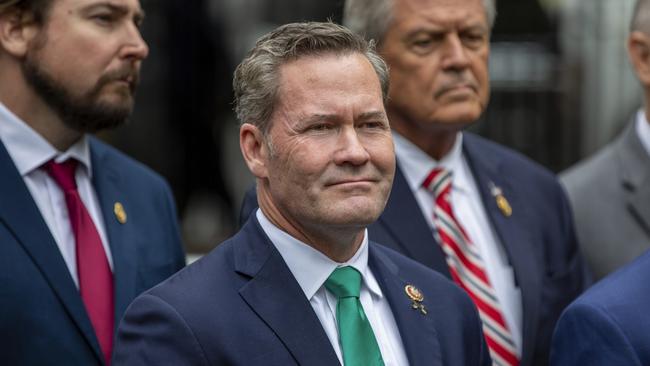
As Robert O’Brien, Trump’s first-term national security adviser, told me last month, the objective is “a return to a ‘peace through strength’ posture for the United States, how we deal with our enemies and how we support our friends”.
Marco Rubio, the Florida senator nominated as secretary of state, is a serious and experienced advocate for an assertive, realist foreign policy.
Mike Waltz, designated national security adviser, has been a foreign policy specialist with a similar worldview. Elise Stefanik, nominated as ambassador to the UN, is staunchly pro-Israel and won fame last year when she pummelled Ivy League university presidents over their kid-glove approach to pro-Hamas protests on their campuses.
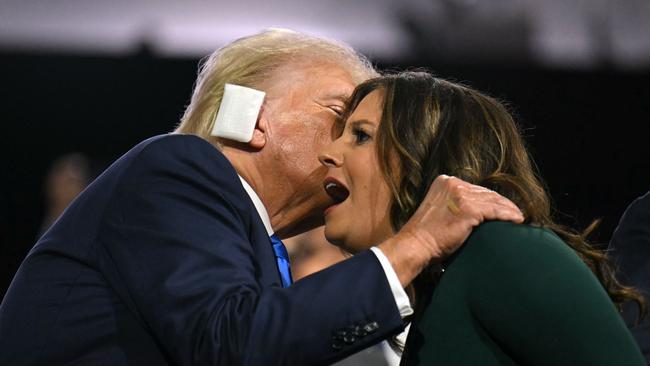
Pete Hegseth, nominated for defence secretary, is more controversial. Some question his credentials – a veteran of Afghanistan, he has made his name since primarily as a Fox News commentator. But the Princeton- and Harvard-educated national guardsman has been a critic of dysfunction in the US armed forces and promises to clean house.
What unites them is a clarity of strategic purpose: the primacy of focusing on the threat posed by China. This means tougher measures to isolate China’s economy, tighter diplomatic ties with allies in the region and additional US military resources. The corollary is a more balanced global posture, given limited US resources, and more reliance on allies elsewhere.
Israel’s success in pushing back Hamas and Hezbollah, and their Iranian masters, is seen as a model of the kind of alliance the US wants in Europe.
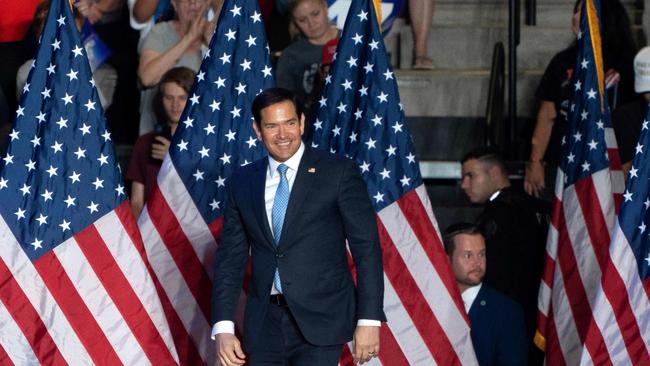
As members of congress, Waltz, Rubio and Stefanik all voted against the authorisation of an additional $US60bn ($93bn) in aid to Ukraine this year. But it would be wrong to see this as a “betrayal”. As Waltz wrote recently in The Economist, the emerging view among Republicans is that continued economic and military support for Ukraine will result only in a continued bloody stalemate. A deal to end the conflict is inevitable and would involve some unpalatable territorial gains for Russia but be accompanied by more isolation of Moscow and help for Ukraine to move closer to the West.
Longer term, they argue, the European members of NATO should be more like Israel – more evidently willing and capable of defending itself against the would-be regional hegemon.
Trump will always be the unpredictable showman but his foreign policy is deadly serious.
The Times


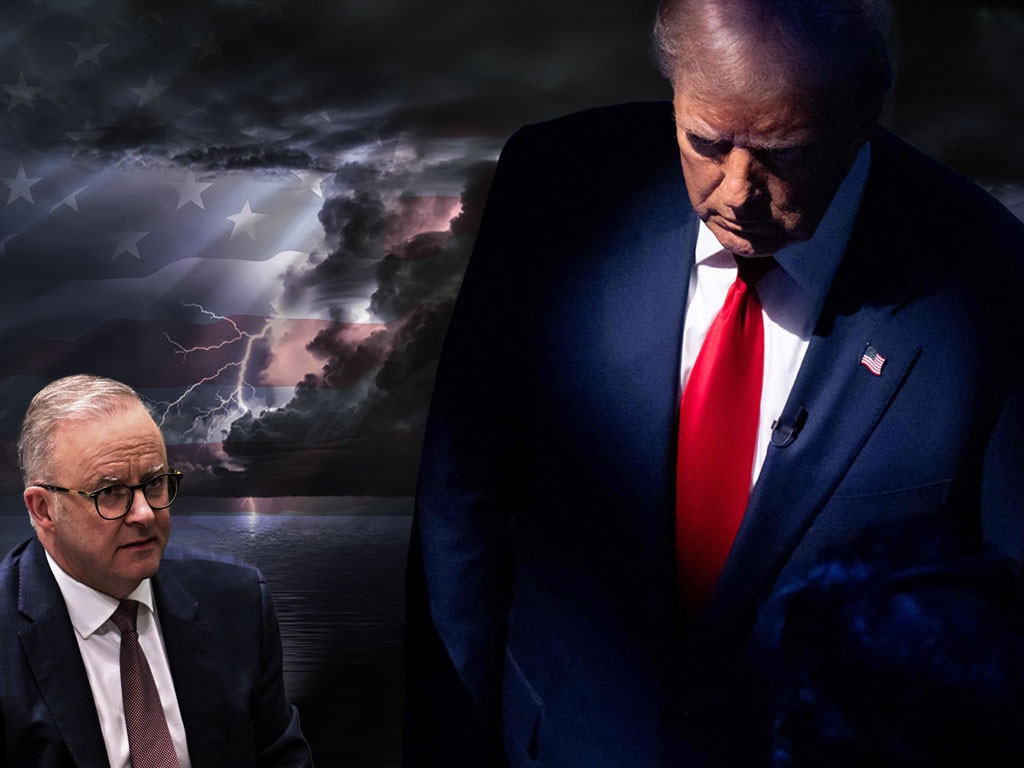




As the first showman-turned-statesman in US presidential history, Donald Trump likes nothing more than to blur the lines between governing and taking the mickey, a tendency on full display as he began assembling his second-term cabinet.